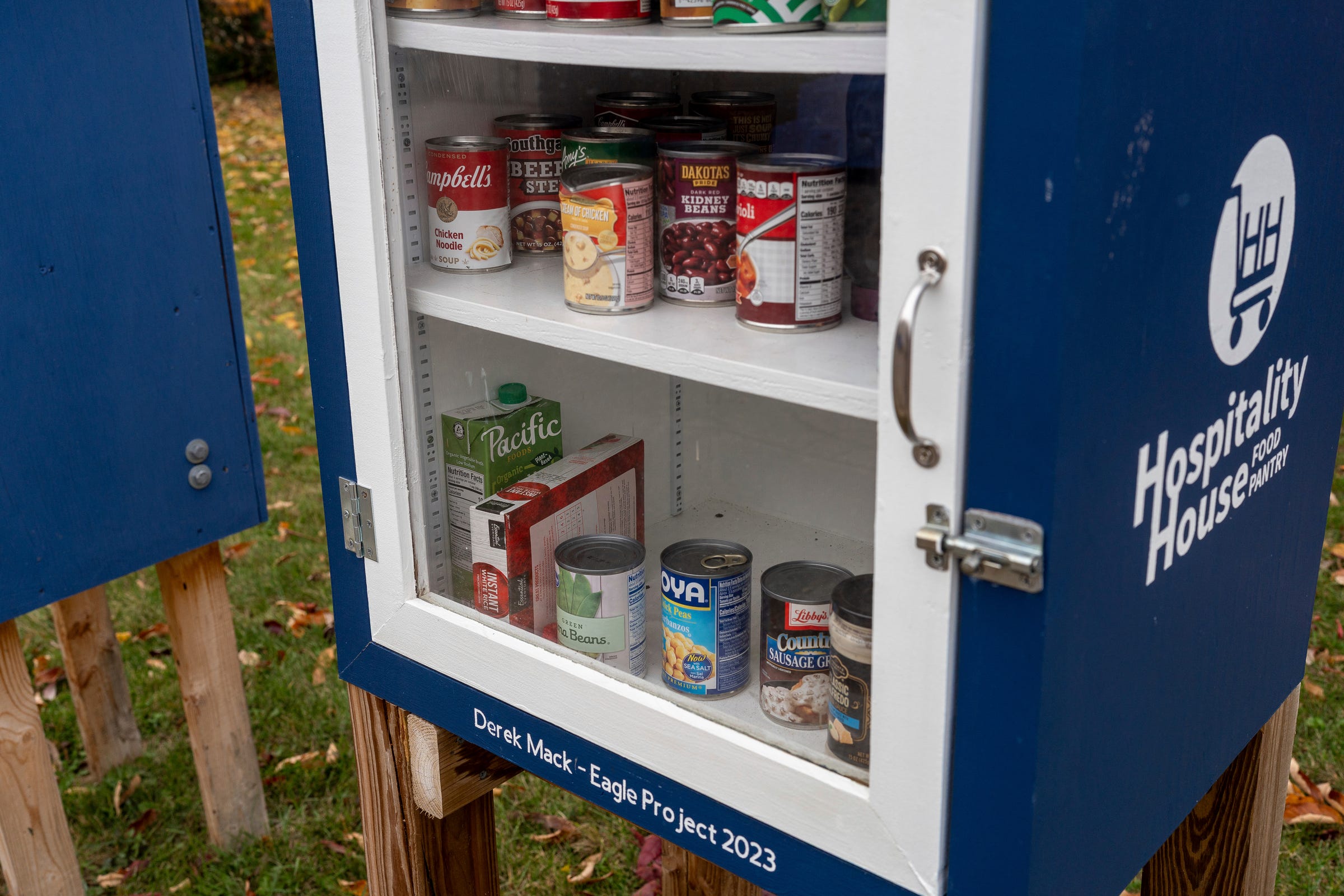President Donald Trump has voiced criticism of congressional Democrats, claiming they are harming their own constituents by opposing funding for the Supplemental Nutrition Assistance Program (SNAP). Speaking to reporters on October 31, 2023, during his trip to Palm Beach, Trump asserted, “SNAP recipients are largely Democrats… They’re hurting their own people.” His comments come as the program faces potential funding interruptions due to a federal government shutdown that has persisted for over a month.
The implications of a funding pause for SNAP, the largest anti-hunger initiative in the United States, are significant. The U.S. Department of Agriculture announced last week its intention to halt food assistance payments after November 1, 2023. This could mark the first time in SNAP’s history that federal food assistance is paused. Approximately 1.4 million residents in Michigan rely on these benefits, which are crucial for low-income families to afford food.
While Republicans have criticized Democrats for their resistance to passing a continuing resolution to open the government, Democrats have pushed back against the Trump administration’s stance. They argue that the administration should utilize contingency funds to maintain SNAP benefits during the shutdown. This contention has led to legal scrutiny, with two federal judges indicating on the same day that the government may be required to use these funds to sustain food assistance in Michigan and other states.
In a notable ruling, U.S. District Judge Indira Talwani ordered that the U.S. Department of Agriculture must decide by November 3, 2023, whether to provide reduced SNAP benefits using available contingency funds or to pay full benefits by accessing additional resources. This decision reflects the legal requirement that food assistance benefits provided under SNAP are an entitlement under the law.
Furthermore, in a separate case in Rhode Island, U.S. District Court Chief Judge John McConnell Jr. ruled that SNAP benefits must be paid as mandated, further emphasizing the legal obligations surrounding food assistance during the ongoing government shutdown.
Currently, SNAP serves nearly 42 million participants across the United States, with approximately 13% of households in Michigan receiving assistance. The majority of those benefiting from the program are children, older adults, and individuals with disabilities, making the stakes of this funding issue particularly high for vulnerable populations.
The ongoing federal shutdown has broader implications beyond food assistance. It centers around the extension of health care subsidies, an issue that has divided both parties. Republicans are advocating for a short-term funding agreement, while Democrats are insisting on an extension of health care subsidies under the Affordable Care Act, which are set to expire on December 31, 2023. The expiration of these subsidies could lead to increased premiums for those enrolled in the plans.
With the future of SNAP and other critical programs hanging in the balance, the impact of the shutdown continues to resonate across the country. Those affected are encouraged to reach out and share their experiences as the situation develops.







